Angelika Baybak, the editor of the national news feed for “24 Channel,” has been in this role for almost two years, working remotely the entire time. She lives in Mykolaiv, having moved there when Russian forces started mercilessly bombing her hometown. Before that, her village had been under occupation for eight months. However, after enduring these hardships, Angelika faced a new challenge – a Russian missile hitting near her current home. Having experienced emotional shock in the middle of the night, the 27-year-old media professional gradually recovered, supported by her family and colleagues.
“In the occupation, very few knew that I was a journalist.” At the time of Russia’s full-scale invasion, Angelika Baybak was with her parents in her native village of Shyroka Balka, in the Stanislav community of Kherson region, about 40 km from Kherson, located on the border between Kherson and Mykolaiv regions. The large-scale war came unexpectedly for the locals, and they never imagined that something like this could happen in the 21st century. The first occupiers arrived in March, and by the end of the month, they had captured the village.
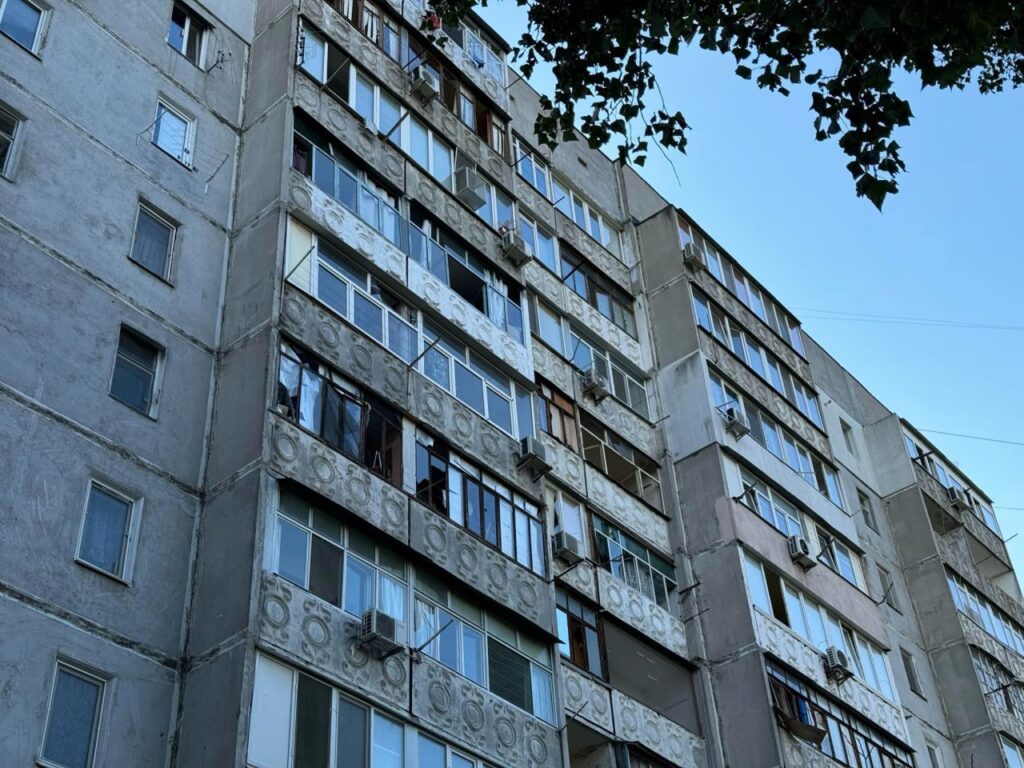
“At first, they just drove military vehicles around, then set up command posts, stationed equipment, and set up checkpoints,” recalls Angelika. “From here, the enemy shelled our forces’ positions and settlements in the Mykolaiv region. They used cluster munitions, rocket launchers, and everything they could. We ended up right on the frontline in an active combat zone.”
At that time, Baybak worked remotely as a news feed editor for the “Kurs Ukraine” website. For a few weeks, up until the full occupation, she was still able to work part-time. After that, power, Ukrainian mobile service, and the internet were cut off. But most importantly, showing any support for Ukraine and revealing her place of work became extremely dangerous.
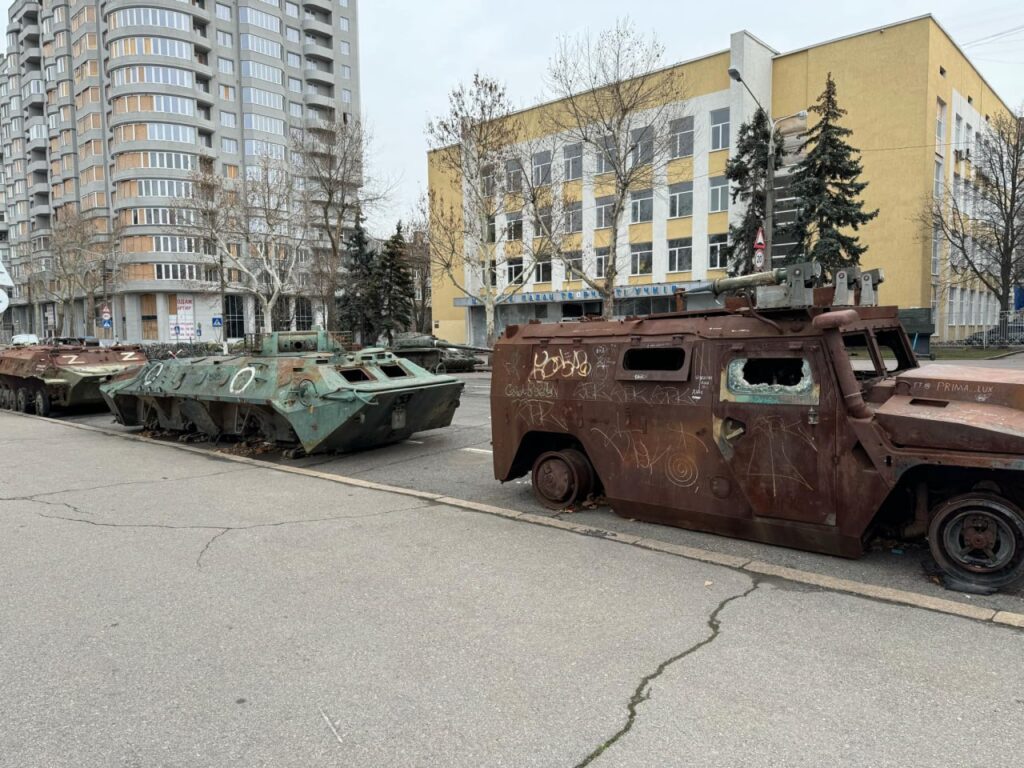
“Very few people in the village knew that I was a journalist,” she shares. “Since I was 18, I lived in Kherson – I enrolled in university, got a degree in Ukrainian language and literature teaching, and continued living there. So, when the occupiers asked, ‘Where do your children work?’ my father told them I had just graduated and had a teaching diploma, and somehow it worked out that I was living with my parents. During the first few months of occupation, I tried not to leave my yard at all. I deleted everything from my laptop and phone that could provoke the occupiers. Anything could provoke them: a ‘suspicious’ photo, message, or a Telegram channel.”
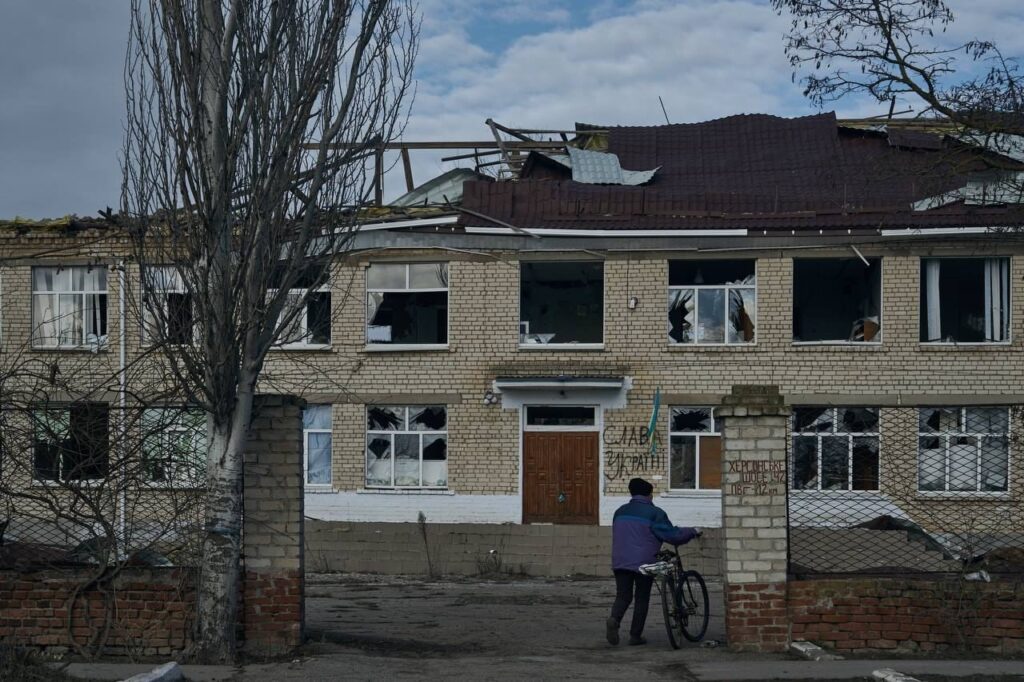
According to Angelika, the occupiers thoroughly checked the local residents’ gadgets:
“There were 12-13 checkpoints every one and a half kilometers on the road to Kherson, and at every checkpoint, they checked phones. There was also direct control within the village. You couldn’t say you didn’t have a mobile, as they wouldn’t believe it. You couldn’t just give them a completely clean phone either; they could tell immediately that everything had been wiped. So, the device had to look like one you were actually using, but with nothing Ukrainian on it. It was scary, but we tried not to show it – not to give the occupiers the idea that we were afraid of them.”
The residents of Shyroka Balka survived as best they could and supported each other. Local farmers always had food supplies, and at the beginning of the occupation, shops were still operating. By April-May 2022, however, there was nothing left. But it was the planting season, so people grew their own produce. Some businesses continued to operate in Kherson region. Later, food supplies to stores started arriving from the occupied parts of Zaporizhzhia region or Crimea because there was no other choice. Did the locals know what was happening outside the occupied territories? Yes, because there was partial access to information.
“In our settlement, we could watch Ukrainian TV by catching a signal from the Mykolaiv region,” says Angelika. “Sometimes, and this was a great blessing, we could catch a weak Ukrainian connection, enough to send a message. But closer to Kherson, we couldn’t get Ukrainian connections or TV anymore, except by satellite.
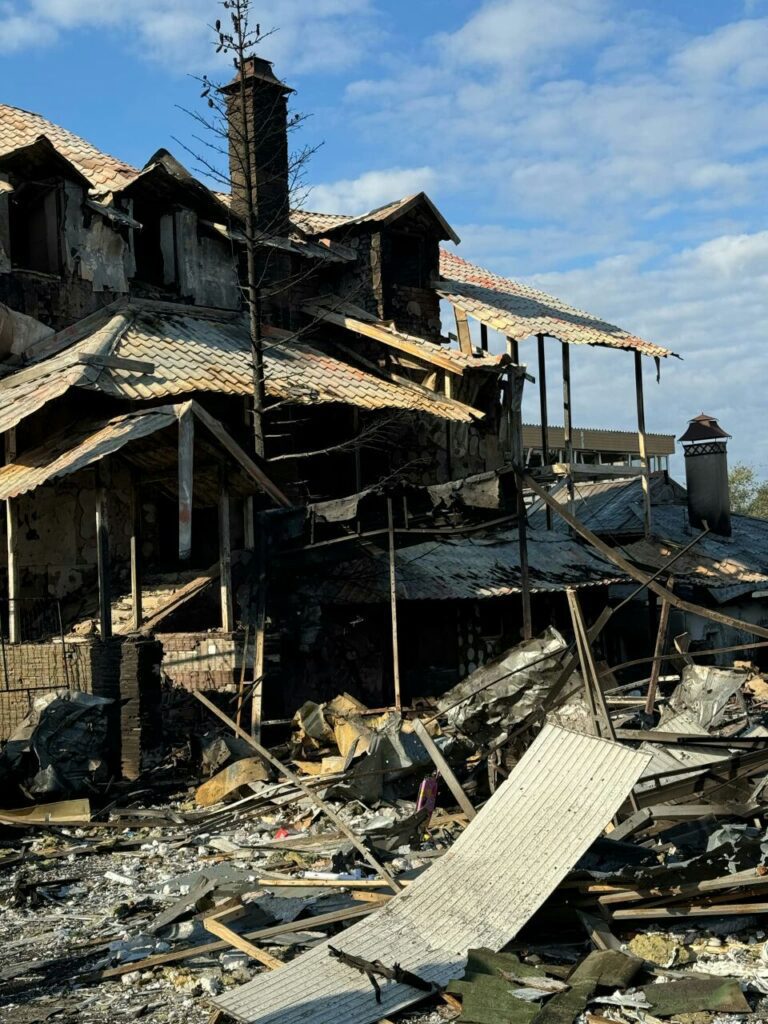
“I wouldn’t say for sure, but it felt like Shyroka Balka was mostly occupied by soldiers from the parts of Donetsk and Luhansk regions that had been occupied since 2014. Maybe that’s why we were spared many war crimes – it wasn’t as bad as in other occupied territories,” Angelika Baybak reflects. Two years after the liberation of her hometown, Angelika is overwhelmed with emotions when recalling the day of de-occupation. In November 2022, before fleeing, the Russian forces damaged the gas supply and blew up the power lines, leaving the residents without basic services.
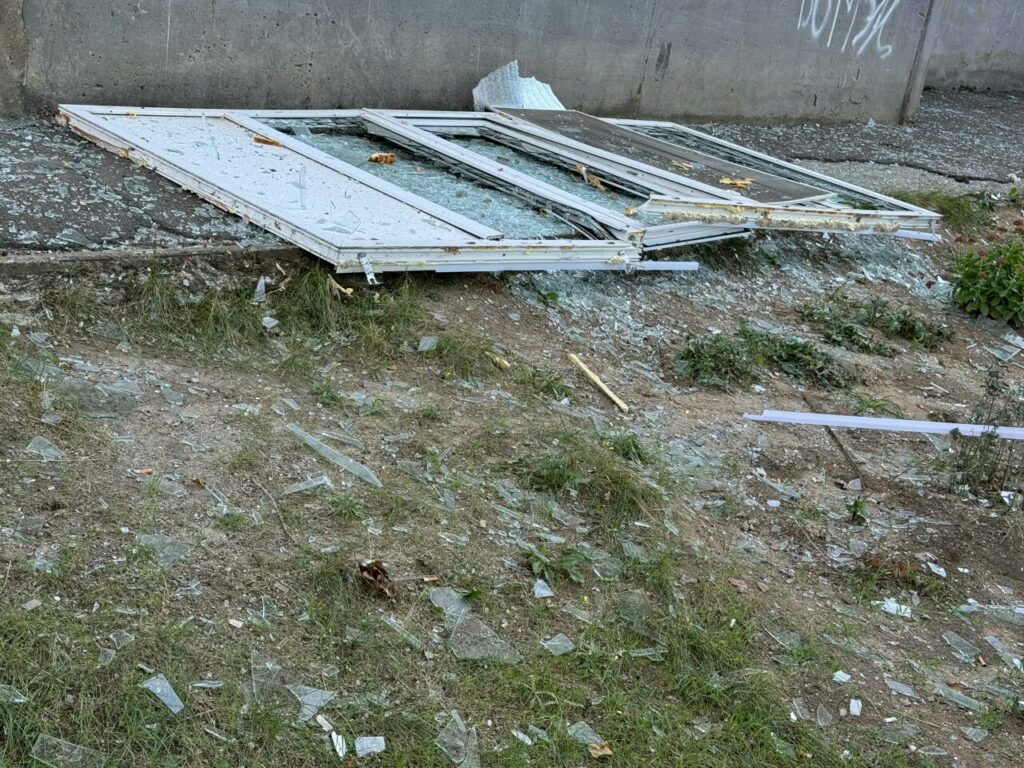
Angelika recalls:
“On November 10, my father and I went (by car – Ed.) to Kherson to refill gas cylinders because there was nothing to cook with. On the way back, we met more Russians. We passed their checkpoints, and as we got closer to the village, we saw soldiers. At first, we thought they had brought in new Russians. The occupiers had been fleeing quickly in recent days, taking anything they could. But when we got closer and saw the Ukrainian military, I don’t know how to describe the emotions. We were shocked at how many people were actually living in our villages. During the occupation, everyone tried to minimize their outings to avoid unnecessary encounters with the Russians. When we reached the village center and saw Ukrainian flags, it was truly an incredible joy. In the first month after liberation, of course, there was a bit of ‘chaos,’ but we were happy: we saw a lot of our military, rejoiced that we could talk to them, hug them, or feed them.”
The relative calm lasted about a month. Then the intense Russian shelling of the village began again, with artillery and mortars. Angelika, now working for “24 Channel,” left for Mykolaiv in May 2023. By the summer of 2024, the situation had become critical: since late summer, in Shyroka Balka, as in other villages on the right bank of Kherson region, the occupiers were hunting civilians using FPV drones. People are afraid to leave their homes – every trip could be fatal. “They hunt anything that moves – cars, bicycles, motorcycles,” Angelika Baybak notes sadly. “You can only go out or leave in the rain, fog, or strong winds when the occupiers can’t launch drones. Utility workers are doing their best to keep life going in these villages. But most residents have left. The villages on the right bank are being destroyed with everything – RSZV, artillery, mortars, and tanks.”
By the end of 2024, Mykolaiv, although to a lesser extent, still suffers from Russian shelling. A ballistic missile could come from Crimea at any time, often before the air raid siren even sounds. Additionally, the occupiers attack with Shaheds, cruise missiles, and S-300 missiles. In Mykolaiv, air alerts can occur up to 7-10 times a day. One of these S-300 missiles recently hit very close to the apartment building where Angelika lives with her husband and his younger brother. It was terrifying.
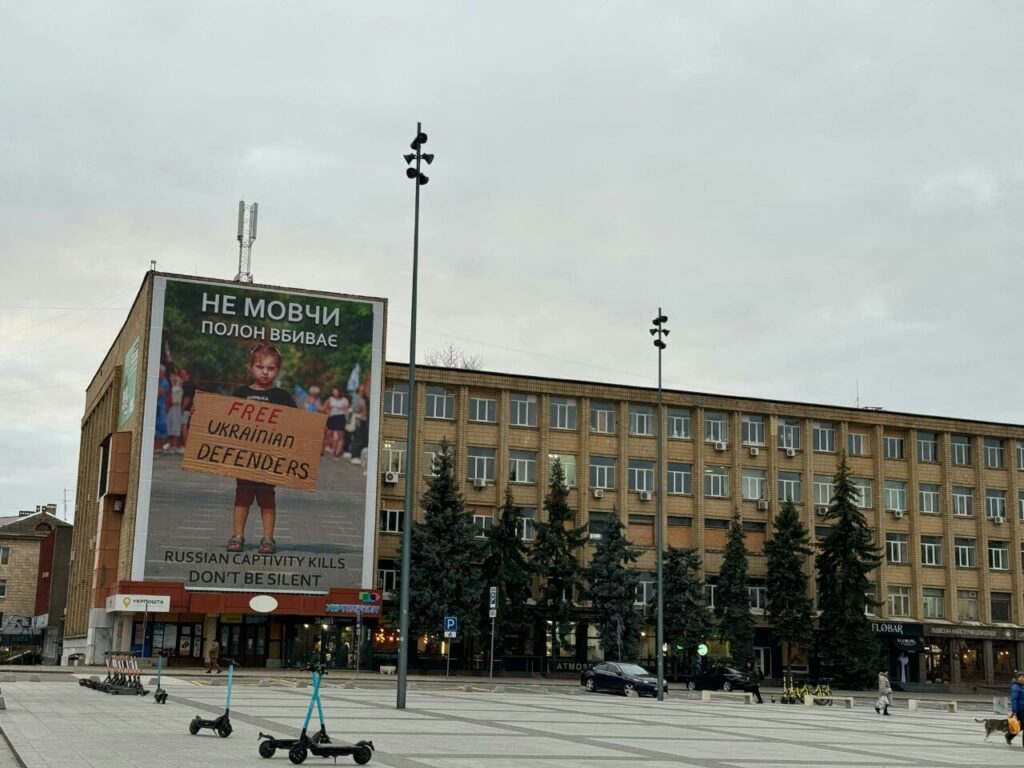
“I had a bad feeling before this shelling. I thought I was just overthinking it: something’s about to happen,” she shares her anxiety. “And then on October 15, around 2:30 AM, I woke up to a powerful explosion. It was very close, and the windows and doors of the apartment shook. I don’t know how these survival instincts work, but I quickly found myself in the hallway. A few seconds later, there was a second explosion, even closer. Glass fell, doors started falling off… We sat in the hallway, waiting, afraid there might be another hit. Thankfully, there wasn’t. And when we saw the news in the Telegram channel ‘Vanka’ (‘Mykolaiv Vanka’ – Ed.) saying the danger had passed, we went out to inspect the damage. In one room, the windows and balcony doors were completely blown out. The glass on the balconies shattered into pieces too.”
On the opposite side of the apartment, the family saw a large fire through the window. Later, it was revealed that the missile had hit a market, starting a fire in shops and small stores selling household goods. The hot roofing materials shattered into fragments and “shot.” No one was injured only because the strike occurred at night. Angelika’s work shift on the news feed began at 6 AM. Instead, she had to ask for a day off to deal with the aftermath of the explosion at home.
“The glass was everywhere in the apartment – in the clothes, in the beds… So, we cleaned up for a long time and thoroughly. In the afternoon, utility workers brought sheets of chipboard so residents could cover the windows. They helped the elderly do this. It was cool, it was raining – so we had to hurry. We did the restoration ourselves and managed to close the balconies in two days. Soon, we replaced the doors, installed new windows, and returned to normal life, if that can be called normal,” she recalls the October days of 2024.
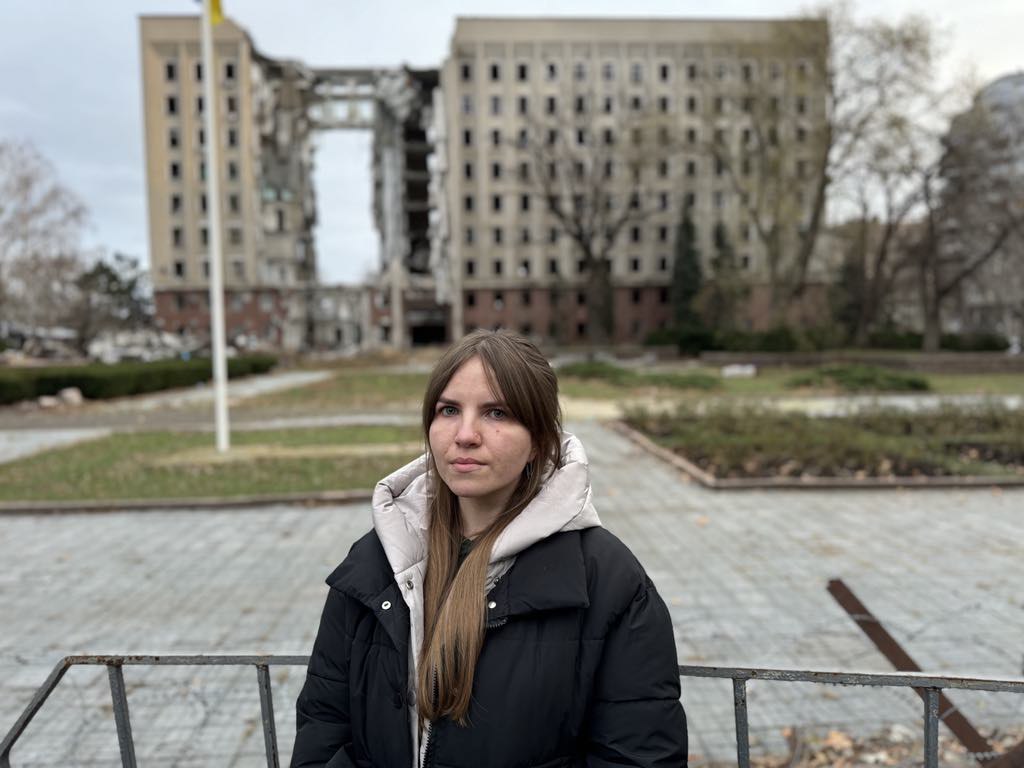
That morning, a colleague quickly found a replacement for her shift on the website. “I immediately wrote in the work chat that we had a strike, and there was damage. They were very understanding. The team at ‘24 Channel’ is wonderful. I feel like I’m with family there: we support each other, and everyone is ready to help at any moment,” Angelika says with gratitude. However, working on the news feed is emotionally challenging. To avoid burnout, a journalist must be able to distance themselves from the stories they cover. But it’s impossible to “switch off” empathy.
“When you write news about shellings, killed civilians, fallen defenders, or war crimes committed by the occupiers, it feels like you’re living through it with those people,” Angelika says sincerely. “Some journalists take this very hard; some leave the profession, unable to handle the constant psychological pressure.”
Living in a war-torn city makes it difficult to make personal and professional plans, as you can’t be sure that any signs of stability will last until tomorrow. However, Mykolaiv, according to Angelika’s observations, is gradually coming back to life: new shops and cafes are opening, and the damaged areas are being rebuilt. The attempts to occupy it, like at the beginning of the full-scale invasion, are now a reminder in the form of an outdoor exhibition of destroyed enemy equipment in the city center.
Created as part of the project “Raising awareness among target groups in Ukraine and abroad about Russian war crimes against journalists in 2024 and increasing public pressure for the release of captured journalists”, which is implemented by the National Union of Journalists of Ukraine with support of the Swedish non-profit human rights organization Civil Rights Defenders.

 THE NATIONAL UNION OF
JOURNALISTS OF UKRAINE
THE NATIONAL UNION OF
JOURNALISTS OF UKRAINE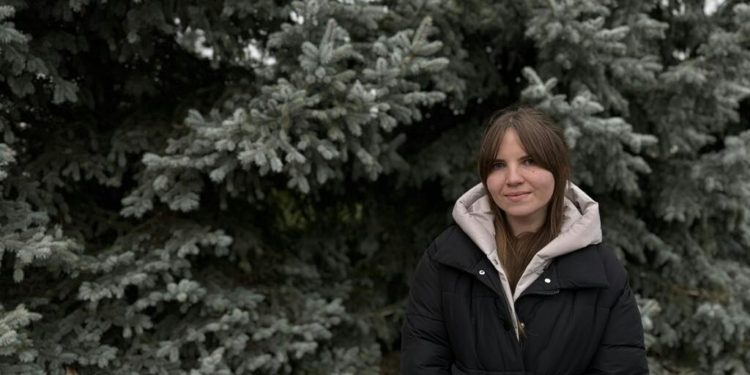
















Discussion about this post